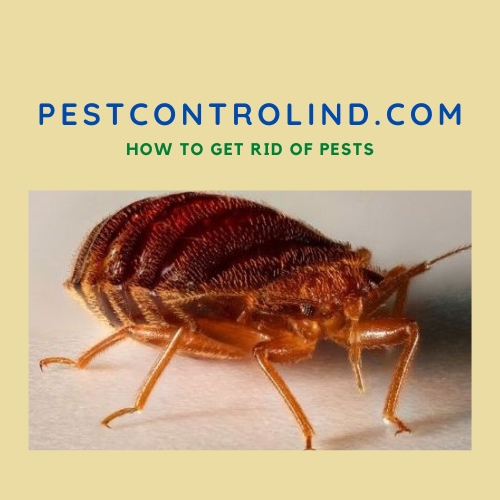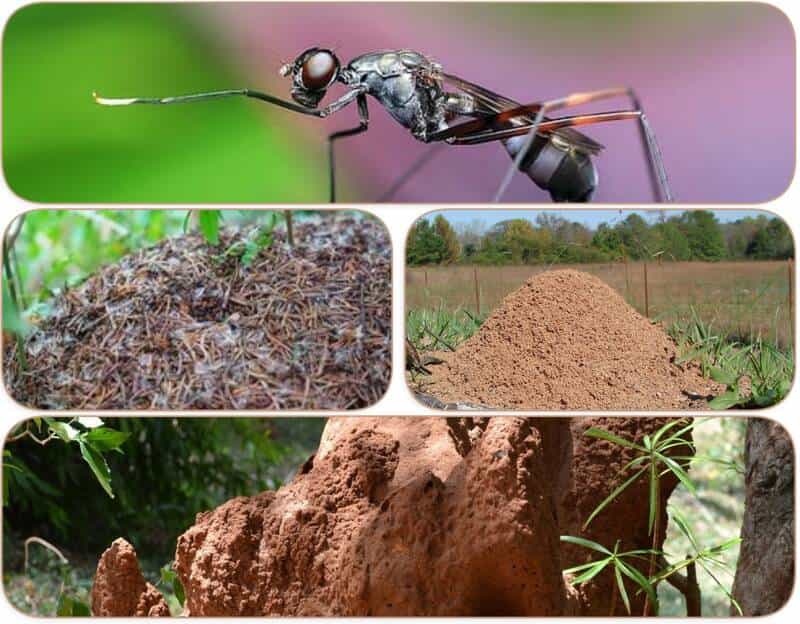An ant nest in the garden usually does not have a great disadvantage, except in the case that these ants make considerable damage, which will ruin your efforts. Only in this case, it is useful to know how to destroy an ant nest in the garden.
Here is how to do it.
But before starting we want to specify that ants are very useful insects for biodiversity and have a very big role to play in the cleaning of the environment and many other things that we do not even know!
And that’s why we must do everything to avoid killing them. And know that sometimes a simple cleaning of our home or garden is more than enough to make them go away!
Indeed killing them should be the last option after doing everything possible to get them out of our homes or gardens!
I. How to destroy a nest of ants in the garden?
If you want to know how to destroy a nest of ants in the garden, here are several very effective methods that will rid you of these almost unwanted guests.
But nevertheless, it should be remembered that ants are of considerable contribution to the balance of the ecosystem existing in your vegetable garden.
There is always a great risk of completely eliminating ants in a garden. That is why you should only destroy the nest and kill the queen if possible to slow down the rate of reproduction.
1. killing the queen
The queen, as we have seen, is the central element of the colony. She burrows into the center of the anthill to lay her eggs and thus increase the number of elements in the colony.
To find the queen, you simply have to follow the lines of ants to their nest. Once you’ve found the ant farm, take your rake and scatter the colony.
Look for the largest Ant among them and crush it.
2. hot water
The easiest and probably the most effective way to get rid of ants is to pour boiling water into the ant farm.
Before doing so, add some dishwashing liquid and flood the colony. The hot water will then destroy the galleries and kill the ants in its path.
As effective as this method is, it is recommended that you do not use it if the colony is located near your plantings.
The hot water could destroy these plants.
If the ants have not disappeared after a few days, do not hesitate to repeat this method as many times as necessary.
You can replace the dishwashing liquid with ammonia or vinegar.
3. baking soda
Mix one part baking soda with one part sugar. Place this mixture near the ant farm.
Wait for the ants to be attracted to the sugar. Once the mixture is consumed, it will dehydrate and die within a few hours.
You can also make a mixture of baking soda and vinegar or hot water and pour it into the anthill to kill the burrowing ants and even the queen.
Baking soda against ants is one of the most used ecological methods.
4. coffee grounds
For this method, you will need coffee grounds that you will mix in boiling water.
Just like the previous methods, pour the mixture into the galleries and let it work.
You can also place the grounds around the anthill and at the entrances to the galleries. Coffee grounds act as poison for ants.
The smell of coffee grounds will also scare them away. Repeat this technique for 3 days to destroy the colony for sure.
5. diatomaceous earth
Diatomaceous earth or silicon dioxide powder is a substance that is harmful to ants but harmless to humans and pets.
So don’t hesitate to treat ant hills with a mixture of diatomaceous earth (1 tablespoon) and water (1 liter) and dishwashing liquid (1/2 tablespoon).
You can also put a sugar cube on a 2-centimeter-thick layer of diatomaceous earth. This powder dehydrates the ants in a few hours.
The ants, once contaminated, will then come out of their hiding places to find water. In about a week, the ants will be wiped out.
This method of diatomaceous earth against ants must be renewed as soon as it gets wet.
It should be noted that it must be protected from humidity and rainwater.
Also, do not breathe the diatomaceous earth. Although it is not harmful, it can damage the lungs of fragile or sensitive people.
6. chili and tansy leaves
For this method, infuse tansy leaves in boiling water. Add cayenne pepper. Mix the infusion and pour it on the ant farm.
This simple method is still very effective. Tansy flowers are very beautiful, if you wish, you can plant them in your garden as a precaution.
It is also possible to combine several methods with this one.
7. other repellents
Like the previous techniques, you can sprinkle many powders that serve as ant repellents.
Talcum powder mixed with salt, bone and blood powder (an organic fertilizer), wood ash, sulfur, cinnamon, chalk, etc. are all very good repellents.
Sprinkle it at the entrances to the ant farm or mix it with boiling water to scare the ants away.
8. the rake
Repeatedly rake the earth in an ant farm to destroy the galleries. This will cause the disorganized colony to flee your garden.
Take advantage of the mess and exposure of the colony to find and kill the queen. At the same time, pour in dishwashing liquid to kill the fleeing ants.
This method is best used in a vegetable garden because the soil is loose and you won’t destroy your crops.
9. boric acid against ants
To prepare a powerful boric acid-based repellent, all you need to do is follow the correct dosage.
Mix 6 tablespoons of boric acid with 1 liter of water. You can then pour the mixture into the anthill or soak a cloth with the mixture and leave it in a box within reach of the ants, not far from their anthill.
You can also mix 30 g of condensed milk with 30 g of boric acid. Adjust the ingredients to make a pancake-like paste.
Then roll the mixture into balls the size of small marbles. Place the balls on a sheet of paper near the ant hills.
Creating boric acid traps is fairly simple. Mix one part boric acid with one part syrup. Spread the sticky substance on cardboard.
Ants will be attracted to the sugar in the syrup and will stick to it before dying from boric acid poisoning.
However, boric acid is dangerous for children and pets. Boric acid will work for about 6 months.
So please take precautions and use gloves and other protection when using them. Also, do not put this repellent in contact with your plantings.
10. plants (walnut leaves, tomato leaves…)
Some plants are very effective and natural repellents against aphids and ants. Lavender, basil, camphor, or mint, in addition to their pleasant smell, will scare away ants from your garden.
11. essential oils
For this method, simply mix a few drops of essential oil of mint, lavender, lemon, cedar, or eucalyptus (be careful: the last one is toxic for cats) a dose of washing-up liquid, and 4 doses of water.
Spray the liquid at the feet of your plants to prevent ants from climbing on them to put the aphids on them.
12. lemon
Much like the previous method, simply spray a mixture of water and lemon juice on the ant farm or your plants to get rid of the ants.
You can also scatter lemon peel on the ground or let half a lemon rot on the ground for a few days.
Ants hate lemons because of their acidity.
13. clean up
Ants feed on everything within their reach. Don’t make it easy for them by leaving food or crumbs on the tables in your garden.
Don’t leave stumps or logs to rot in your garden. These are ideal shelters for certain species of ants.
In fact, some ants can find a home in the trunks of your trees. If you see that this is the case, act quickly, the ants can kill the tree in question in just a few weeks.
14. Get rid of aphids
As we have already pointed out above, ants breed aphids.
So make life difficult for them by eliminating aphids from your garden as well. To do this, you can bring in their natural predator, the ladybug.
However, be very careful: only use the European ladybug. Because the Asian ladybug is a harmful species and is considered the most invasive in the world.
So if you don’t want to deal with an even bigger problem, never invite the Asian ladybug into your home.
15. eggshells
Scatter eggshells at the entrances to the anthill to prevent ants from entering or leaving their galleries.
Eggshells are sharp for ants and abrasive. This is why ants will avoid it at all costs and will eventually flee when they see that the passages to their nest are cluttered with this eggshell debris.
II. Why is it necessary to destroy the ant farm in the garden?
Ants live in colonies. They reproduce and swarm quickly. And even if they play an important role in nature, they are no less harmful in some cases for your garden or vegetable garden.
Indeed, during large infestations, ants in large numbers attack all kinds of plants.
They devour leaves, fruits, and stems. And to prevent your garden from feeding hundreds or even thousands of ants, it is necessary to destroy the anthill or make life difficult for its inhabitants.
This way, they will be forced to leave their nest. If you want to get rid of ants, the best way is to kill the queen.
The queen is the largest ant in a colony. Her role is reproduction. There is only one queen per colony.
So, if you kill the queen, you doom the colony. Because without reproduction, the colony will only survive one generation.
The colony will then flee your garden and join a new colony.
III. What damage can be caused by the presence of an ant farm in the garden?
Ants contribute greatly to the biodiversity of your garden. They feed on other pests (especially caterpillars) and predators of worms and spiders, such as wasps or beetles.
Although they are useful, they can also cause imbalances and destroy your vegetable garden. In fact, when they are in large numbers or when there is a lack of insects, they sometimes eat a lot of plants and stock up on food in their anthill to feed the queen.
In addition, ants raise aphids. They force them to reproduce. The aphids will then suck the sap from the trees and synthesize a sweet substance, the juice.
The ants then feed on this juice. This almost industrial breeding is therefore a danger to your garden.
On the other hand, ant hills are real underground galleries. They weaken the soil and prevent your plants from establishing roots and therefore from surviving.
Last but not least, in some cases, ants can quickly ravage your garden or vegetable garden by devouring the stems of your plants.
Moreover, if you let a queen survive until the laying period, she will create a new colony in your garden.
The longer you let a colony live, the more ants will be present. That’s why you need to act quickly and effectively.
Useful Links:
https://www.pnas.org/doi/10.1073/pnas.2201550119
https://www.frontiersin.org/articles/10.3389/fevo.2021.661066/full

